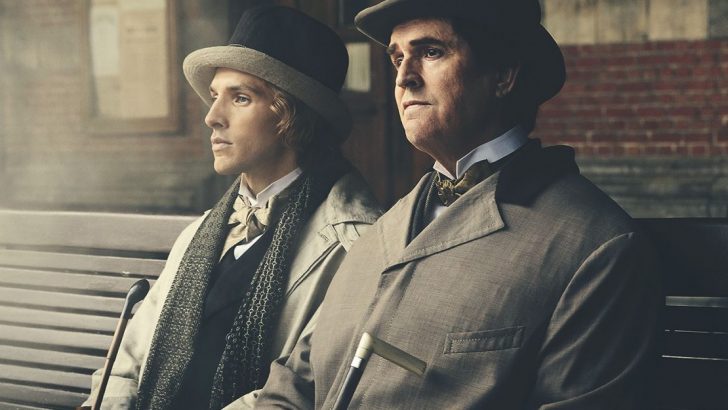The Happy Prince (15A)
Rupert Everett has been fascinated by Oscar Wilde for most of his life. He’s acted in many of his plays on Broadway and played his alter ego in films like The Importance of Being Ernest and An Ideal Husband. He also played Wilde himself in David Hare’s The Judas Kiss on the West End.
In this, his directorial debut, he explores the post-trial Oscar, something other biopics haven’t done. Why did prison crush his spirits so much? Many people have done longer sentences and bounced back but Wilde was never the same after Reading Gaol.
Undoubtedly his spell there was arduous, and the fall was greater because he lived such a high life before his incarceration. There’s ‘easy time’ and ‘hard time’. Considering his demeanour, it was always going to be the latter for the erstwhile bon viveur.
From this point of view, the title of Everett’s film – which he also scripted – is a misnomer. It’s based on a children’s story Wilde wrote of the same name but The Unhappy Prince would have been more appropriate.
Such gripes apart, this is a fine piece of film-making. It documents the alcohol-soaked destitution of the once-flamboyant playwright with elegiac accuracy. The wit is gone, whatever slivers of it that remain only accentuating his misery. In its place is a man like the rest of us mortals: fallible, real and tarnished.
Stephen Fry, who played Wilde in Wilde, was more physically similar to him. Everett buries himself under layers of prostheses to give us a more nuanced character, bloodied and bowed, living off the scraps of former glory. He cuts a forlorn figure in cinematographer John Conroy’s grimly lush mises-en-scenes.
The broken-down Wilde looks back at his halcyon years from Paris, Naples, Normandy and Rouen. “Like dear St Francis of Assisi,” he sighs, “I’m wedded to poverty. But in my case the marriage is not a happy one.” He waits for death in a dilapidated hotel room with bad wallpaper.
Court action
Colin Morgan is Bosie, the man who brought him down as a result of the court action he took against his father, the Marquis of Queensbury. His tragic flaw was rising to this man’s bait. The exhibitionist in him saw the courtroom as another stage; in the end it proved to be more like a gallows.
Emily Watson plays Constance, the wife who stumps up the money for him to keep body and soul together until she becomes frustrated about the fact that he’s still seeing Bosie. Edwin Thomas is Robbie Ross, his literary executor and former lover. A moustached Colin Firth – Everett’s co-star in Another Country – is his friend Reggie Turner.
There’s an air of fin-de-siecle decadence about the film that’s reminiscent of Luchino Visconti’s Death in Venice. It’s a heart-rending threnody to a heart grown brutal from the fare. “Why should a perfectly divine leopard change his spots?” Wilde asks. But he does, he does.


 Aubrey Malone
Aubrey Malone Colin Morgan (left) plays Bosie in The Happy Prince
Colin Morgan (left) plays Bosie in The Happy Prince 